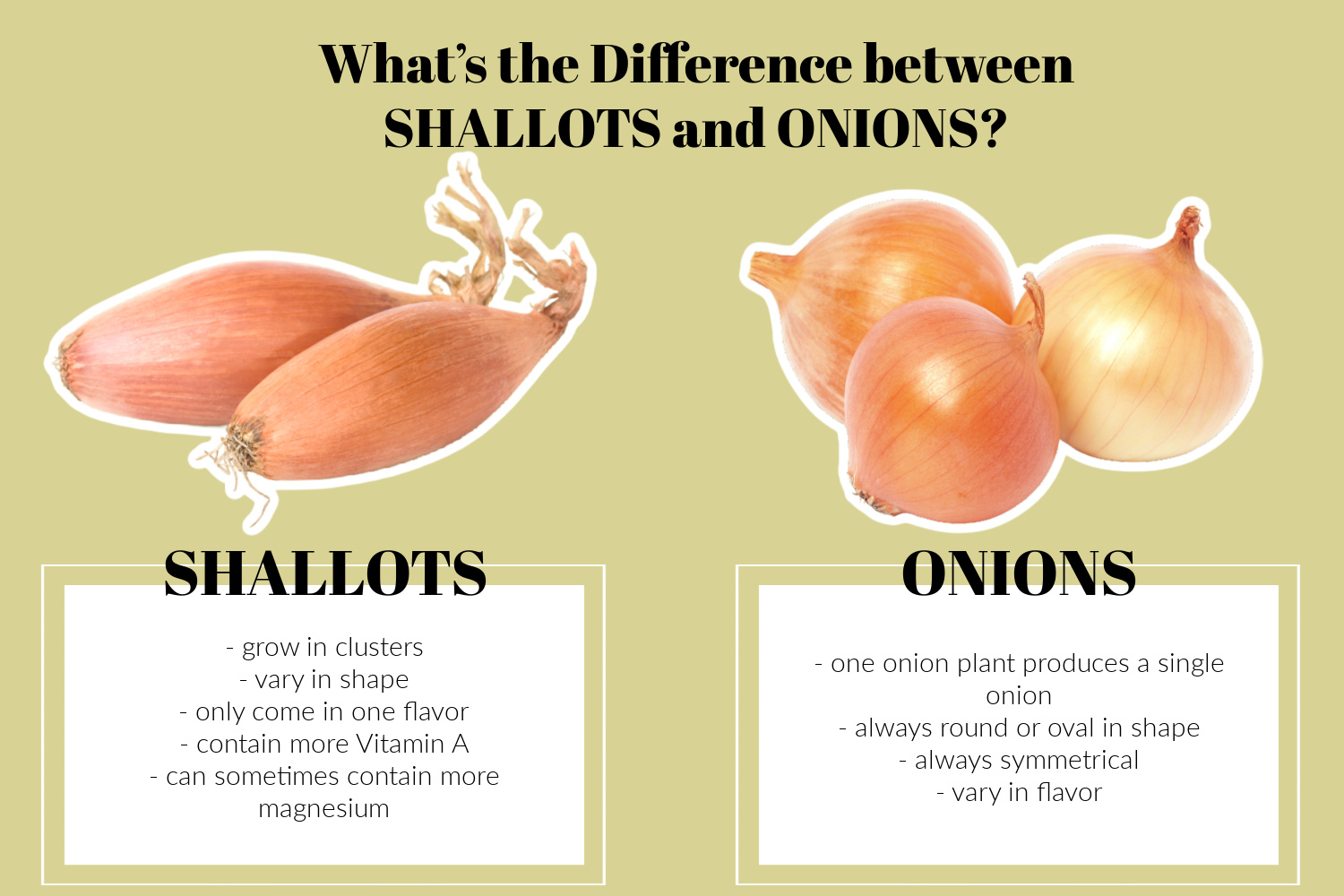Shallots and onions differ in how they look and the flavors they can add to a dish. While they are both a variety of allium, a large genus of plants, shallots and onions are not the same thing and should not be used interchangeably in all recipes.
The 4 Differences Between Shallots and Onions
1. How They Grow
Shallots, unlike onions, grow in clusters, meaning one plant produces multiple shallots. Onions vary based on the type, but usually, one onion plant produces a single onion. As a result, shallots are often smaller than onions, and their shape can be affected by the number of shallots growing around them.
2. Shape
Onions are always round or oval in shape and are always symmetrical. Conversely, shallots vary in shape based on the space they are given to grow and the number of shallot bulbs they share a plant with.
3. Flavor
Onions vary in flavor, while shallots only come in one flavor. Based on the type of onion you choose, there is flavor variety. Red onions have more of a peppery taste, and yellow onions tend to be on the sweeter side. Shallots tend to be slightly more garlicky but lighter in flavor than an onion.
4. Nutrition
Both onions and shallots contain several vitamins and minerals and are a healthy addition to any dish, but shallots are a bit more nutrient dense. Shallots contain more Vitamin A than onions and can sometimes contain more magnesium as well.
Can You Swap Onions for Shallots in Recipes?
Most of the time, it is okay to swap onions for shallots, especially when they will be in a cooked recipe. Just keep in mind that shallots are milder in flavor than onions, and you may need to use extra to achieve the same flavor.
In raw recipes, however, it is best to stick with what the recipe calls for, as you won’t be able to swap shallots for onions on a one-to-one ratio. While some websites recommend using a 2:1 ratio (two shallots for every one onion), this can lead to varied results because of how onions and shallots vary in size.
Because the shallots remain uncooked in these recipes, it is especially dangerous to swap for a raw onion, which could be much stronger than you anticipated and lead to unintended (and not tasty) results.

Leave a Reply